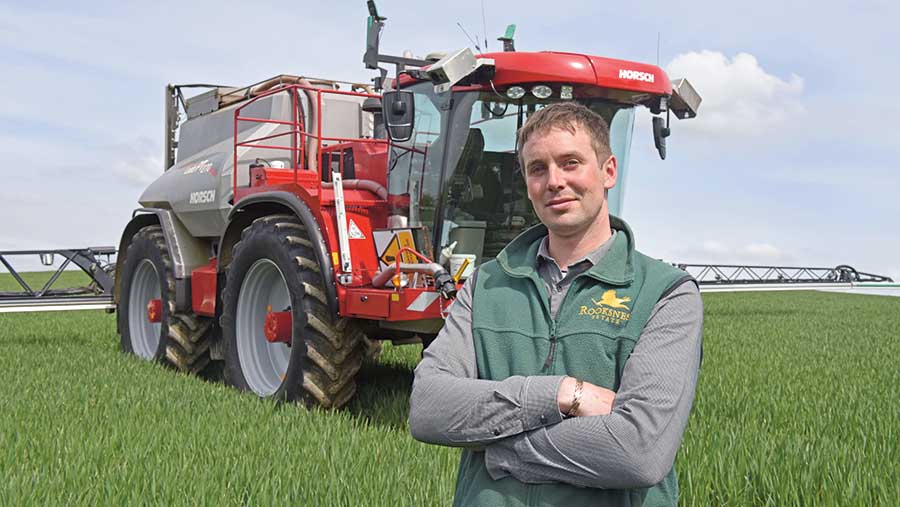Job profile: What’s it like to be an arable farm foreman?
 Chris Milligan
Chris Milligan There is always strong demand for skilled farmworkers to work on farms up and down the country.
These are roles where you could be given significant responsibility at a relatively young age if you have the right skills and attitude.
Farmers Weekly asked farm foreman Chris Milligan to explain what his job is like.
See also: Job profile – What’s it like to be a plant breeder?
Name Chris Milligan
Age 28
Job title Arable farm foreman
Company Rooksnest Estate, near Hungerford, West Hungerford
Sum up your job in a sentence or two
I am an arable farm foreman on an estate that covers 2,020ha, with a little over 1,620ha of combinable crops.
The main part of my role is as the farm’s sprayer operator, applying all farm sprays and liquid fertiliser. At harvest time, I am the combine driver.
What does this involve day to day?
My first job each morning is to organise the rest of the staff so everyone knows what they should be doing.
If the weather is on our side, I will then be off spraying. If not, there are plenty of other jobs to be getting on with on the estate, from fencing and woodland work to machinery maintenance.
What do you most enjoy about your job?
The best part is the spraying, because as the year progresses the crops are always changing.
Maintaining a healthy crop free from weeds and disease is no mean feat in the UK, so I was pleased to be shortlisted recently as a finalist in the 2017 Farm Sprayer Operator of the Year competition.
Agriculture is a fantastic sector to work in and I would encourage more people to embrace it.
Every day has different challenges and no two days are the same. Plus, you get to work in a rural setting with wildlife all around.
What can be the downside?
The biggest downside is the hours at peak times of the year. But as I was always told, farming can’t just be a job – you need a passion for it.
What percentage of your job is office-based?
Very little. Probably about 5% and that’s where I’m ordering equipment, organising servicing or doing research.
What skills and qualifications are essential to do the job?
All users of pesticides must hold a certificate of competence. This involves completing a foundation module (PA1) as well as passing the PA2 module, which includes a practical assessment.
There is also a National Register of Sprayer Operators (NRoSO) that requires members to do a certain amount of training each year to keep up with best practice.
It also helps if you are mechanically minded as it gives you the ability to sort out problems as they arise, although more and more is done with laptops today.
I would like to look at completing Facts and Basis courses to enhance my sprays and chemical knowledge.
What experience did you have before starting?
I wasn’t born into farming – I came from a town, but had a lot of friends in farming who drove me to it.
I had also done quite a bit of work for some local contractors.
I moved from Scotland to England in 2010 to take a job as a harvest student, after a period working for an agricultural dealer in Scotland, where I also completed a higher national diploma in land-based technology engineering.
What other careers did you consider?
Various engineering roles.
What tips/advice would you give to someone wanting a similar role?
Take the opportunity to go on as many training courses as you can – it will help your knowledge and understanding of the job.
Don’t be afraid to get stuck in. Get your hands dirty and ask lots of questions.
Give us an idea of the salary a new-starter might expect
For someone just starting in this sector the salary could be anything from £21,000-£30,000/year with harvest bonus and a house, although this will vary depending on knowledge and skills.
What’s the best bit of career advice you’ve been given?
Be honest and admit if you don’t understand something or the way it works.
The owner or manager will respect you more for speaking up than making mistakes and breaking machinery because you weren’t too sure.

